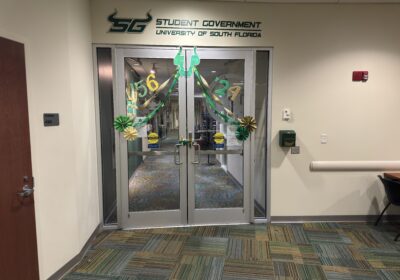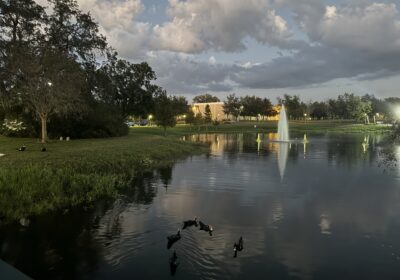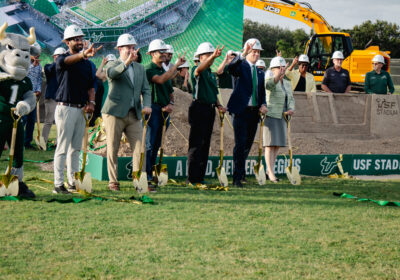USF colleges face understaffing issues, increase in student enrollment

Over the past year, USF colleges and departments, especially those with an increasing number of students, have faced staffing issues due to the lingering effects of the pandemic.
Understaffing has resulted in bigger class sizes and also limited the number of programs and electives available for students, according to Muma College of Business Dean Moez Limayem. With the return to normalcy from COVID-19, colleges are hoping to see an increase in budget support and staff.
“I would like to see an injection of more faculty so we can better meet the students’ demand and so we can have a better educational experience for our students and so we can increase the number of programs and electives for our students,” Limayem said.
College of Engineering Dean Robert Bishop said before COVID-19, the college was already struggling with understaffing due to low funding, but the pandemic only exacerbated this problem.
“The biggest factor has been the budget and the lack of sufficient budget support over the years to adequately staff the College of Engineering. And that got worse of course during COVID-19,” Bishop said.
Three main branches of the College of Engineering have been affected by understaffing, according to Bishop, including departmental offices, advising and lab courses.
The most impacted out of those three being the staff working with lab courses. A reason for this being because the College of Engineering is lab- and research-oriented, Bishop said.
“We’re deeply, severely understaffed in terms of technicians, folks that are required to maintain the labs in both teaching and research,” he said.
Over the past three years, the staff employed in the College of Engineering has been growing steadily, according to Bishop. During the 2019-20 academic year, Bishop said there were 119 staff employed, between 2020-21 there were 122 and for the 2021-22 year there are 124.
Despite the slight increase in staff, Bishop said the growing number of students entering the college has still managed to stretch out the existing staff.
The USF factbook shows in the 2021-22 school year there were a total of 5,122 students enrolled in the College of Engineering, an increase from the 5,073 in 2020-21.
“Certainly the growth in students [has contributed to short-staffing],” Bishop said. “Engineering is a very popular major. We had more incoming first-time-in-college students [this year] than we have ever had.”
Limayem said the Muma College of Business is also in need of more staff to accommodate for the high level of incoming students.
In the 2021-22 school year, the college reported a total of 5,178 degree-seeking students, a decrease from the 5,407 in 2020-21. However, the college saw an overall increase since 2019-20 when it had 4,640 students enrolled.
When USF’s state funding decreased due to the pandemic, permanent staff in the Muma College of Business were retained. However, the number of adjunct faculty had to be decreased to accommodate budget cuts.
“We also had to reduce the number of adjuncts that we hire, so our faculty has to teach a bit bigger classes,” Limayem said.
This increase in the student-to-teacher ratio made it more difficult for business students to receive the attention they would in smaller classes, according to Limayem.
Limayem hopes USF can receive more state funding in response to the university’s performance so it can invest money in resolving the understaffing problem.
“We are hoping the state will see that the University of South Florida is absolutely a great investment for the taxpayer. Why? Because we changed lives, because our students’ success metrics are excellent. The cost per student is one of the best in the country,” he said.
Administrators from the Muma College of Business have also taken steps to support the college’s budget by reducing expenses and working on streamlining business processes to make it efficient and cost-effective.
The college is using a system called Shared Service in which colleges around campus are able to coordinate and share purchased services to cut costs.
“When faculty or staff travel … or when there are purchases or transactions, instead of having in every school or every department of the college people who are doing that, we centralize that into a unit. This is called Shared Services,” Limayem said. “That makes it much more effective and much more efficient.”
The budget will likely stabilize in the future and it won’t be a constant problem for the College of Engineering, according to Bishop.
“We’re looking forward to a new president, and now a new provost and the various positions, and I think there’ll be new ideas that come in on how to access and manage the budget,” Bishop said. “So it has been a problem, a challenge for engineering, but no, it won’t always be.”







